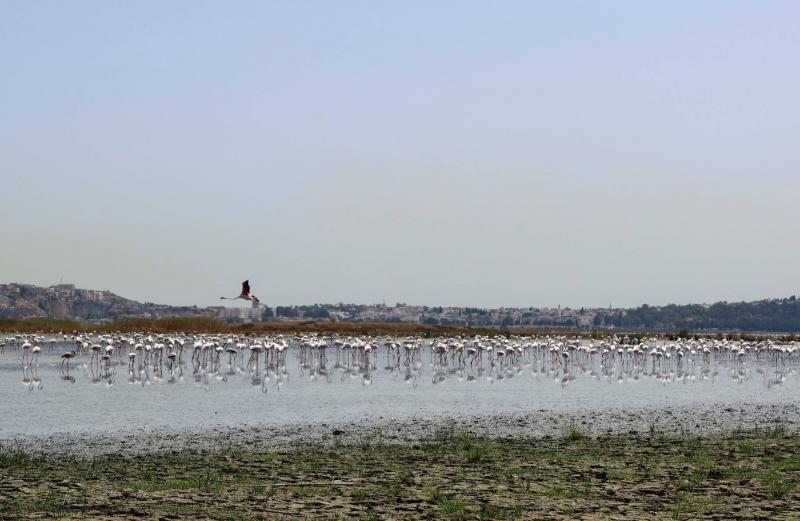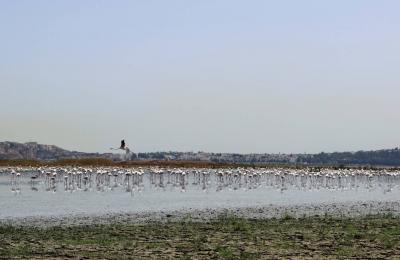Lakes in general, and coastal ones in particular in Tunisia, are experiencing drought and rising temperatures, endangering a sensitive ecosystem and disrupting huge flocks of migratory birds that use wetlands as stopovers on their migratory routes between Africa and Europe. The Lake of Ariana, on the outskirts of the capital Tunis, has become a cracked expanse of dry mud, with sands currently surrounding its small islands where birds once used to nest, now devoid of life after months of drought and a severe heatwave. Even the nearby Sejoumi Lake, which had always had more reliable water sources, has become half empty, while flocks of flamingos cast a pale pink hue across a patch of wetland as Tunis's neighborhoods rise on a hill behind them.
Radhia Haddad, an environmental education expert and activist who has been visiting the lake since 2012, stated, "This year, you can feel that there is an environmental disaster due to drought. It's the first time I've seen Sejoumi Lake dry like this." Tunisia, located in the Mediterranean facing the Italian island of Sicily, is on the main migratory path for hundreds of bird species, with its vast wetlands serving as a refuge for wading birds that migrate north across the desert or south from the Arctic and Northern Europe. Last month, temperatures in Tunisia exceeded 49 degrees Celsius on an extremely hot day, indicating hotter summers in recent years accompanied by drier winters as a result of climate change in North Africa.
Sejoumi Lake and dozens of other large lakes and inland lakes surround the Tunisian coast behind long golden beaches frequented by European tourists in the summer. Even with the arrival of a rare rainstorm in June, Sejoumi Lake remained mostly empty. Wading birds and other birds nesting among the reeds, water, and mud risk losing their usual seasonal habitat. Standing on cracked dry ground where the birds used to nest on small islands in the lake, Radhia Haddad added, "This long period of drought this year has significantly affected many ecosystems, especially wetlands in general and not just Sejoumi Lake specifically."
Hicham Azafzaf, the scientific coordinator of the Bird Lovers Association, remarked that he has not seen such drought in the wetlands during his 20 years of continuous monitoring. However, while this summer is particularly bad, it follows a longer-term trend that is already having a clear impact on birds. Azafzaf added, "We’ve noticed in recent years that many species no longer come to Tunisia in winter, including the goose that used to come before, around 30,000 geese which would arrive in winter at Ichkel National Park, but now we’re recording about 400 to 600 geese."
He clarified that climate change is not the only threat to wetlands in Tunisia. Cities and towns grow near the edges of lakes, and debris and waste are often dumped in or near the waters. Nonetheless, lakes and other wetlands are also important for the local population as they regulate local temperatures during heatwaves and help prevent severe flooding by absorbing rainwater from sudden storms.




